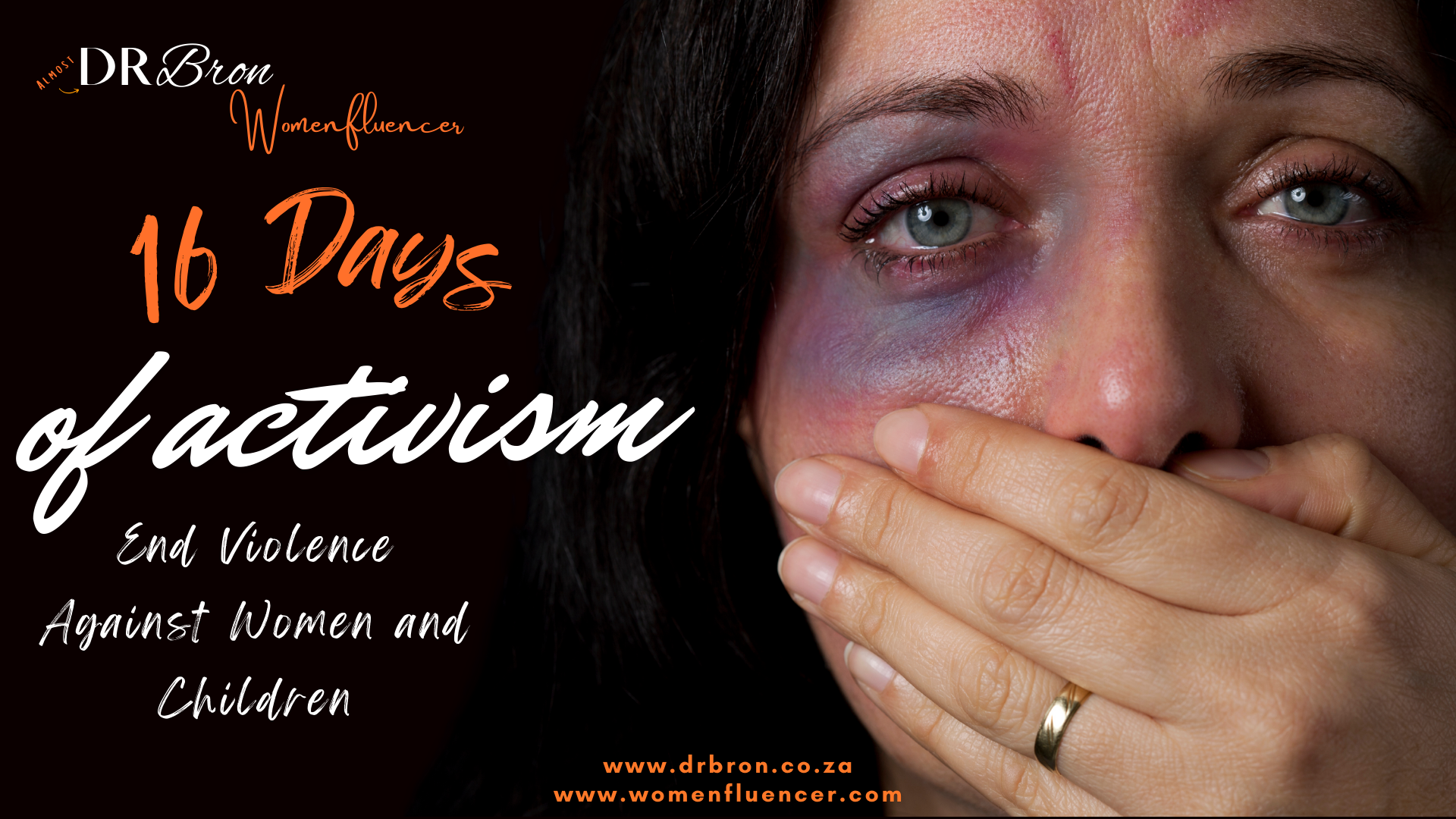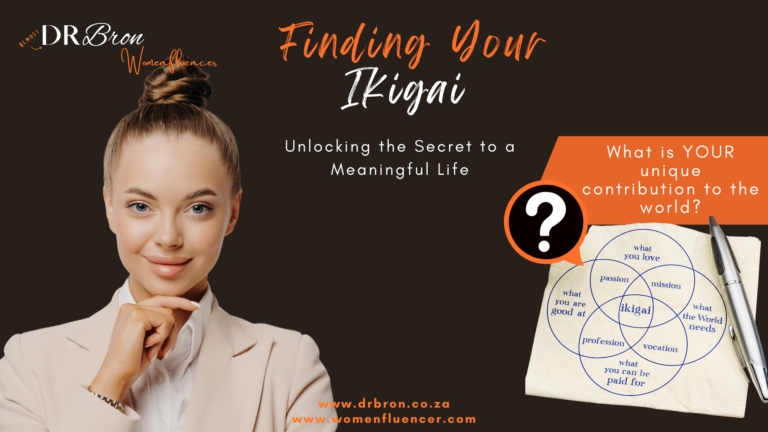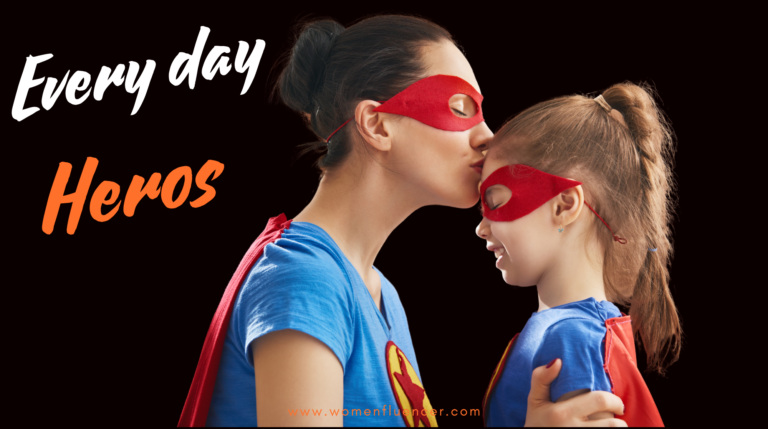On average, a woman is killed every three hours in South Africa. That’s about eight women a day. And our children? They are not spared—over 2,600 children were murdered last year alone.
Every year, from 25 November (International Day for the Elimination of Violence Against Women) to 10 December (Human Rights Day), the world unites for the 16 Days of Activism Against Gender-Based Violence. This global campaign is not just a call to action but a rallying cry to challenge violence against women and children, which remains one of the most pervasive human rights violations worldwide.
Despite progress in raising awareness, the numbers remain staggering—and deeply troubling. One in three women globally will experience physical or sexual violence in her lifetime, most often at the hands of an intimate partner (WHO, 2021). For children, the statistics are equally heartbreaking. According to UNICEF, nearly one billion children aged 2-17 years experience some form of physical, sexual, or emotional violence annually.
We cannot remain silent as leaders, citizens, parents, and human beings. The 16 Days of Activism reminds us that addressing this scourge requires collective action, systemic change, and a commitment to justice.
Understanding the Impact
Violence against women and children transcends physical harm; it ripples through families, communities, and economies.
- Economic Cost: Gender-based violence costs countries approximately 2% of their GDP, equivalent to lost productivity and healthcare expenses (World Bank, 2019).
- Intergenerational Trauma: Children exposed to violence are twice as likely to perpetuate or experience violence as adults, creating a vicious cycle (UN Women, 2020).
- Health Consequences: Survivors often face long-term mental and physical health challenges, from post-traumatic stress disorder to chronic illnesses.
South Africa: A Microcosm of the Crisis
South Africa, often referred to as the “rainbow nation,” faces a grim reality when it comes to violence. The statistics are both sobering and urgent:
South African Statistics on Violence Against Women and Children
- Femicide Rates: South African women are five times more likely to be murdered by intimate partners than the global average (Crime Stats SA, 2022).
- Gender-Based Violence: Over 40% of women in South Africa will experience physical or sexual violence in their lifetime (UN Women, 2020).
- Domestic Violence: Reports of domestic violence surged during the COVID-19 lockdown, with the South African Police Service receiving over 120,000 calls for help in the first three weeks of lockdown in 2020 (National Prosecuting Authority, 2021).
- Child Abuse: More than 50,000 cases of child abuse are reported annually, although many cases remain unreported (Child Welfare South Africa).
- Rape Cases: In 2023, South Africa recorded 42,164 reported cases of rape—an average of 115 rapes per day (Crime Stats SA, 2023).
- Violence in Schools: 35.7% of children aged 12-17 reported experiencing violence in schools, ranging from physical attacks to sexual abuse (Statistics South Africa, 2019).
- Violence Against Girls: Girls are disproportionately affected, with 20% of girls aged 15-19 experiencing sexual violence (UNICEF South Africa, 2022).
These statistics underscore the urgency of addressing violence against women and children in South Africa through systemic interventions and collective action.
What Can We Do?
The statistics may seem overwhelming, but the power of change lies in each of us. By committing to action, we can create safer spaces for women and children and dismantle systems of oppression. Here are five ways you can contribute during—and beyond—the 16 Days of Activism:
- Raise Awareness: Use your voice and platforms to speak out against violence. Social media, workplace discussions, and community forums are powerful educational tools.
- Support Organisations: Donate to or volunteer with organisations working to end violence, such as POWA (People Opposing Women Abuse) or Childline.
- Hold Systems Accountable: Advocate for stricter laws and enforcement against perpetrators of gender-based violence. Push for policies that prioritise survivors’ safety and access to justice.
- Break the Silence: Challenge cultures of silence and victim-blaming. Let survivors know they are not alone and believe their stories.
- Educate the Next Generation: Teach children about consent, respect, and speaking out against injustice.
Hope for a Better Future
The journey to end violence against women and children is long but not impossible. Around the world, grassroots movements, survivor-led initiatives, and policy shifts pave the way for a more equitable and just society. In South Africa, the government’s National Strategic Plan on Gender-Based Violence and Femicide (NSP-GBVF) is a critical step toward systemic change. Still, its success depends on widespread collaboration and accountability.
Change begins when individuals, businesses, and governments unite with one purpose: to create a world where violence has no place. This 16 Days of Activism, let us stand together—not just for 16 days, but for the 365 days that follow.
Join the Movement
Ending violence against women and children requires more than empathy; it demands action. I urge you to reflect on how you can make a difference. Whether it’s through education, advocacy, or direct support, every step matters.
Together, we can transform the tide of violence into a wave of empowerment, equality, and safety.
Let us not wait for another headline or statistic to compel us into action. The time to stand against violence is now.
Sources
- UNICEF (2021). Child Protection Statistics.
- WHO (2021). Violence Against Women Prevalence Estimates.
- UN Women (2020). The Economic Costs of Violence Against Women.
- Crime Stats SA (2022). Femicide in South Africa.
- World Bank (2019). The Cost of Gender-Based Violence.
Let’s act, inspire, and empower. Together, we rise.




